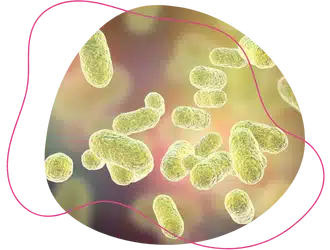Imagine finishing a meal and hours later still feeling bloated, nauseous, or exhausted. For millions living with gastroparesis, this is a daily reality. Often called “delayed gastric emptying,” gastroparesis disrupts the normal movement of food from the stomach to the small intestine, leading to chronic nausea, vomiting, bloating, pain, and even malnutrition.
August – Gastroparesis Awareness Month

Traditional treatments, dietary changes, medications, or gastric pacemakers can ease symptoms, but they rarely repair the underlying damage. At Stemwell, we believe in going beyond symptom control. Our regenerative approach focuses on repairing the stomach’s neuromuscular and immune systems, the core mechanisms that keep digestion running smoothly (1,4,5)
Understanding the Root of Gastroparesis
Gastroparesis often arises from damage to the vagus nerve, stomach muscles, or interstitial cells of Cajal, the stomach’s natural pacemakers responsible for coordinated contractions (1). Causes include diabetes, post-viral syndromes, autoimmune disorders, or surgical complications (4,5).
Over time, impaired nerve signaling and inflammation slow stomach movements, making digestion uncoordinated and uncomfortable. While traditional treatments manage symptoms, they rarely restore normal stomach function.
The Promise of Stem Cells
Mesenchymal stem cells (MSCs) have the remarkable ability to address the root causes of gastroparesis:
- Reduce inflammation → relieve pain and bloating (2,6)
- Support nerve repair → improve stomach contractions (3)
- Restore muscle function → enhance digestion and nutrient absorption(2)
- Modulate the immune response → protect tissues from further damage (6)
- Encourage new blood vessel growth → improve tissue health (7)
Think of MSCs as repair crews sent directly to rebuild the stomach’s “e ngine,” not just manage the symptoms.

From Diagnosis to Regeneration
At Stemwell, we create a personalized roadmap for each patient:
-
Step 1: Advanced Diagnostics
In collaboration with DNA GTX, we perform advanced genomics and microbiome analyses using next-generation sequencing (NGS) to fully understand your inflammatory condition and gut health, enabling a highly personalized approach to digestive wellness (8)
-
Step 2: Customized Stem Cell Therapy
- MSC therapy designed to provide systemic anti-inflammatory and neuroprotective benefits
- Focused regenerative treatment aimed at repairing stomach nerves and muscles
-
Step 3: Supportive Therapies
Optimizing the gut microbiome and reducing oxidative stress supports recovery and helps the stomach heal more efficiently.
The goal: restore coordinated stomach contractions, improve nutrient absorption, and help patients regain a more normal quality of life.
Patient Perspective
“After years of struggling with daily nausea, I noticed real improvement within months of my stem cell therapy. I can enjoy meals again without fear or discomfort.” (Jane, 42 Y)
Stories like Jane’s show the potential of regenerative medicine to change lives, moving gastroparesis treatment from symptom management to functional recovery.
The Future of Gastroparesis Care
While research is ongoing, early studies and patient outcomes suggest regenerative therapy may offer a long-term solution for gastroparesis. By combining cutting-edge stem cell science with individualized care, patients can reclaim not just digestive health, but overall vitality.
Take the First Step Toward Digestive Health
If you or a loved one struggles with gastroparesis, explore how regenerative medicine may help. Visit [stemwell.co] to learn more about personalized treatment programs and start rebuilding your stomach’s natural rhythm today.
Referencias
- Forster J, Damjanov I, Lin Z, Sarosiek I, Wetzel P, McCallum RW. Absence of the interstitial cells of Cajal in patients with gastroparesis and correlation with clinical findings. J Gastrointest Surg. 2005;9(1):102–108. doi:10.1016/j.gassur.2004.09.046
- Lin R, Wang X, Zhang H, et al. Mesenchymal stem cells for the treatment of inflammatory diseases: From mechanism to therapy. Front Immunol. 2021;12:792558. doi:10.3389/fimmu.2021.792558
- Xu X, Jiang H, Li H, Zhang T, Zhou L, Wang L. Mesenchymal stem cell therapy for nerve injury: Basic science to clinical application. Stem Cell Res Ther. 2020;11(1):452. doi:10.1186/s13287-020-01995-1
- Horowitz M, Fraser R, Maddox A, et al. Gastric emptying in diabetes: Pathogenesis and clinical relevance. Diabetes Care. 2002;25(6):1017–1031.
- Soykan I, Sivri B, Sarosiek I, Kiernan B, McCallum RW. Demography, clinical characteristics, and long-term follow-up of patients with gastroparesis. Dig Dis Sci. 1998;43:2398–2402.
- Aggarwal S, Pittenger MF. Human mesenchymal stem cells modulate allogeneic immune cell responses. Blood. 2005;105(4):1815–1822.
- Kinnaird T, Stabile E, Burnett MS, et al. Marrow-derived stromal cells express genes encoding a broad spectrum of arteriogenic cytokines and promote arteriogenesis through paracrine mechanisms. Circ Res. 2004;94:678–685.
- Zhang Y, et al. Next-generation sequencing for microbiome analysis in gastrointestinal diseases. World J Gastroenterol. 2019;25(15):1890–1902
Ready to learn more about stem cell therapy?

At Stemwell, our team of doctors are highly skilled in successfully supporting thousands of people with a range of stem cell treatments. If you would like to learn more about stem cell therapy you can contact us with any questions, or apply today to check your eligibility.

